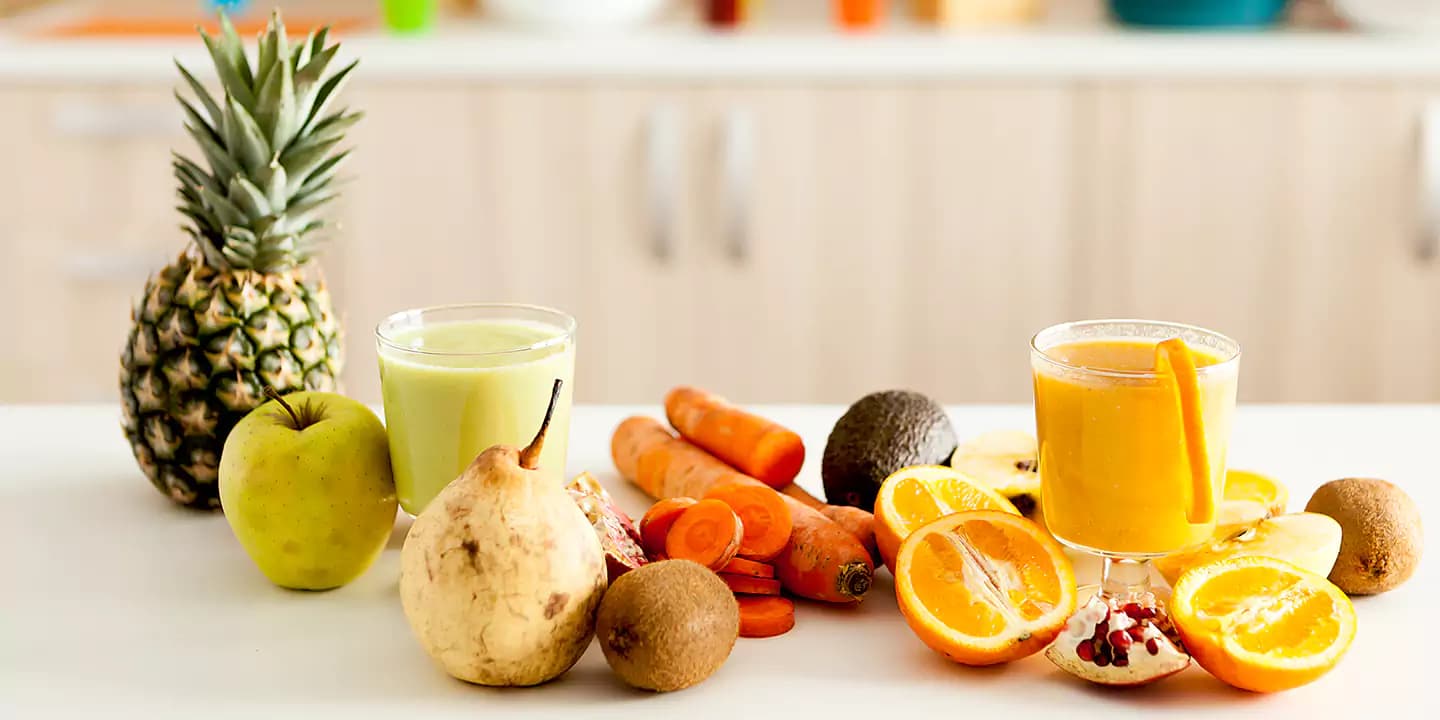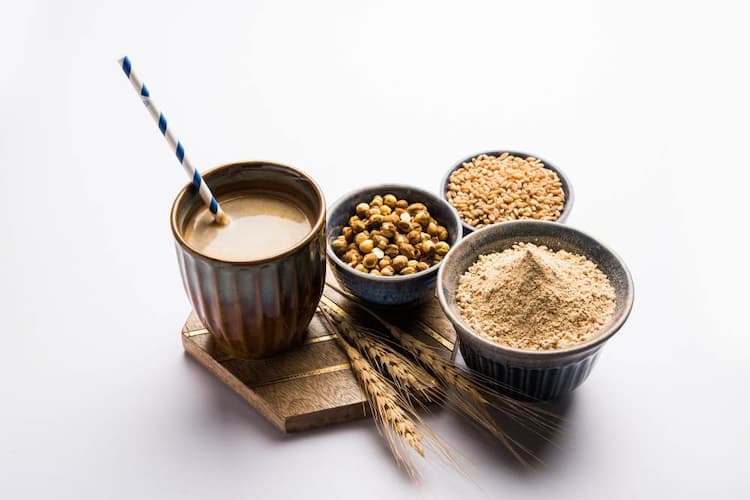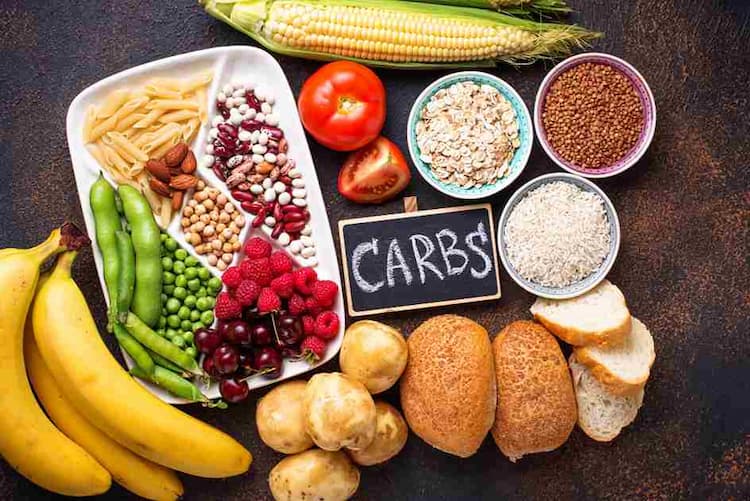List of 10 foods that boost fertility

Medically Reviewed By
Dr. Ragiinii Sharma
Written By Prekshi Garg
on Jan 30, 2023
Last Edit Made By Prekshi Garg
on Mar 17, 2024

The cliché "you are what you eat" applies to all aspects of your life, including your ability to conceive. While no single food or ingredient may miraculously lure a baby to your womb, the importance of nutrition in conceiving cannot be overstated. Certain meals, in the appropriate amounts, can boost your fertility and increase your chances of getting pregnant. We all know that we live in a world where technological breakthroughs and advanced medicine can be quite beneficial, but the benefits of optimizing your nutrition should not be overlooked.
The time before you start trying to conceive is an excellent time to start living a healthy lifestyle that includes eating well, exercising, quitting smoking, and limiting your intake of alcohol and caffeine. Our reproductive function is influenced by our food choices, in a variety of ways. A nutritious diet not only has a direct impact on the fertility of parents, but it is also significant for building up nutrient storage that is required for the fetus's healthy development and growth during pregnancy.
So, do specific meals truly increase fertility? Are there any foods that increase fertility in females or males? Without any doubt, the answer is yes. It's important to remember that there is no magic diet that can get you pregnant, but food and lifestyle choices do have an impact on both women's and men's reproductive health. Foods, along with other factors like lifestyle and stress levels, can improve fertility by influencing your gut, blood flow, hormone levels, and overall health.
With that in mind, here are ten healthy whole foods that may be useful for those looking to improve their diet for conception.
Asparagus
Asparagus is a nutrient-packed superfood. It’s one of the top choices of foods to increase male fertility. In 1 cup serving, you'll get your entire daily intake of vitamin K, 60% of your daily value of folate, and over 20% of other critical nutrients like vitamin A, vitamin C, and B vitamin thiamin.
How to Eat It?
Choose fresh or frozen asparagus whenever possible. It's great as a vegetable side (roasted or grilled) or in recipes like frittatas or stir-fries. Even though it’s convenient, canned asparagus is often high in sodium. If you buy canned or jarred asparagus, search for low-sodium varieties and rinse it under running water before consuming it.
Oysters
Oysters are on almost every fertility food list. They are high in nutrients that promote fertility. Six raw oysters include all of the following critical reproductive vitamins and minerals:
408% of your daily vitamin B12 need
188% of your daily zinc requirement
187% of your daily selenium requirement
43% of your daily iron requirement
How to Eat It?
Many people are terrified by the preparation of oysters, but you don't have to be. This dish can be prepared and served at home. The healthiest option is raw, although they can also be roasted.
Cooked Tomatoes
Tomatoes are strong in lycopene which makes their sperm count increase food. Lycopene is a potent antioxidant that can help boost your fertility. Lycopene has been widely researched for its potential involvement in male fertility enhancement.
Supplementing with lycopene has even been studied as a possible therapy for male infertility. One study discovered that taking 4mg to 8mg of lycopene per day for 8 to 12 months improved sperm health and raised conception chances; nevertheless, it's always a good idea to start by adding certain foods to your diet before turning to supplements. Always with your healthcare practitioner before using any supplement or vitamin.
How to Eat It?
While both raw and cooked tomatoes contain lycopene, 1 cup of cooked tomatoes has nearly twice the amount as 1 cup of raw tomatoes. So, wherever possible, use cooked tomato recipes such as tomato-based soups and stews, tomato sauces, and even roasted tomatoes.
Lentils and beans
Both fiber and folate, which are essential for maintaining a healthy hormonal balance, are abundant in beans and lentils, making them foods that increase fertility in females. Lentils are also high in polyamine spermidine, which may aid sperm fertilization.
Lentils and beans are also high in protein, which can aid in the promotion of better ovulation.
According to studies, consuming 5% of calories from vegetable protein rather than animal protein (particularly chicken and red meats) reduces the risk of infertility owing to anovulation by more than 50%.
How to Eat It?
Try to substitute a lentil or bean-based meal for one or two meat dinners. You may also substitute beans for cheese or meat in your salad. If you go for canned food, be sure the cans are devoid of BPA, a chemical that can lower estrogen levels in women.
Cheese that has matured
Mature cheeses, such as aged cheddar, parmesan, and manchego can be called sperm count increase food, as they may be beneficial to sperm health. Polyamines are abundant in mature cheeses. Polyamines are proteins that can be found in both plant and animal sources. They are also found naturally in humans.
Polyamines may have a significant role in the reproductive system, according to research. Mature cheese is particularly high in the polyamine putrescine, which may be beneficial to sperm health, which makes mature cheese a good option in foods to increase male fertility. Putrescine is also thought to improve egg health, particularly in women over the age of 35. 5 (This is the putrescine found in grapefruit.)
It's crucial to note that some people have cheese allergies or intolerances, so pay attention to your body's reaction while eating.
How to Eat It?
Cheese is so versatile that it can be eaten as an afternoon snack with some nuts or fruits or can just be sprinkled on almost anything. When adding cheese to your diet, just remember that a tiny amount contains a lot of saturated fat. Consume in moderation.
High-Fat Dairy
Full-fat dairy is also one of the foods that increase fertility in females. For those who can stomach it, pastured dairy is a superb choice for pregnancy and fertility. Dairy contains saturated fat, which is particularly favorable to fertility. It's also high in fat-soluble vitamins, such as vitamins A, E, D, K, and K2.
According to one study, women who ate full-fat dairy products were less likely to have ovulation problems than women who ate mostly low-fat dairy products. In this study particularly, low-fat milk or skimmed milk, yogurt, and cottage cheese were all considered as low-fat dairy products. Whole milk, ice cream, cream cheese, and other cheeses were examples of full-fat items.
How to Eat It?
If you already consume dairy, the simplest approach to incorporate full-fat dairy into your diet is to replace skim milk with whole milk and low-fat yogurt with full-fat yogurt. A dish of full-fat ice cream can also be a lovely treat on occasion, but try to limit yourself to one to two portions per week.
Sunflower Seeds
Roasted, unsalted sunflower seed kernels are high in vitamin E, a vital ingredient that has been found in certain studies to increase sperm count and motility, making these seeds the ‘go-to’ foods to increase male fertility. Furthermore, sunflower seeds are high in folate and selenium, both of which are essential for male and female fertility. Sunflower seeds are similarly high in omega-6 fatty acids and contain trace levels of omega-3 fatty acids, which are essential.
How to Eat It?
This sperm count increase food can be an excellent snack on its own, but it may also be simply included in your favorite recipes. Sprinkle sunflower seeds on your salad, add them to the trail mix, or use sunflower seed butter instead of peanut butter. You can also add a couple of teaspoons of sunflower seed butter to a smoothie or stir it into yogurt to add taste and nutrition.
Walnuts
Walnuts are another great example of foods to increase male fertility. Both omega-3 and omega-6 fatty acids are found in walnuts. This is one of the factors which prompted researchers to examine if they could help with fertility.
In a trial, 117 men were divided into two groups: one that avoided eating tree nuts and another that consumed 75 grams of walnuts daily. The males gave a sperm sample before the investigation began and again 12 weeks later.
After 12 weeks, the walnut-eating group exhibited an increase in sperm vitality, motility, and shape. After eating the walnuts, they noticed fewer chromosomal abnormalities in their sperm samples.
How to Eat It?
A modest handful of walnuts is an excellent afternoon snack. You may also add walnuts to chicken salad, porridge, or even ice cream for a healthy crunch. To keep these sperm count increased food fresh, store them in the refrigerator.
Eggs
The yolks of eggs include approximately all of the iron, calcium, zinc, vitamin B6, folate, and vitamin B12. They also contain 100% of the vitamin A found in eggs. Egg yolks from pasture-raised chickens are also high in the fertility-boosting omega-3 fatty acids EPA and DHA, as well as the fat-soluble vitamins A, D, E, and K2.
Another incentive to consume eggs is that they are a cheap source of lean protein, which has been shown to improve fertility in both men and women. Choline, which is found in eggs, may help to lessen the chance of some birth abnormalities.
How to Eat It?
Historically, egg yolks received a poor rap due to concerns about dietary cholesterol. However, nutritionists have recently welcomed the yolk for its nutritious density and balance of healthy protein and fat. Eggs are incredibly adaptable. Accept the whole egg—yolk and all—whether it's hard-boiled, scrambled, poached, or fried.
Pineapple
This tropical fruit may just be one of the best foods that increase fertility in females. It’s a widely held concept that eating pineapple core for five days after ovulation or embryo transfer (during IVF) may aid in implantation. Having said that, there are additional reasons to eat pineapple while trying to conceive. To begin with, pineapple is high in vitamin C. A 1-cup serving provides 46% of the daily recommended intake. The polycystic ovarian syndrome has been linked to low vitamin C levels (PCOS).
Pineapples also have bromelain, a natural enzyme with anti-inflammatory and anticoagulant (blood-thinning) properties. Bromelain helps your immune system get out of an inflammatory state. Inflammatory foods can make it difficult to conceive, and chronic inflammation may urge the body to inhibit ovulation.
How to Eat It?
Choose fresh pineapple whenever feasible because the heat used in the canning process destroys the majority of the bromelain in canned pineapple. Eat it alone, with salsa, or even grilled.
Tips To Naturally Increase Fertility
- Taking an antioxidant supplement or eating antioxidant-rich foods can boost conception rates, particularly in infertile males.
- According to some research, eating more calories at breakfast and fewer calories at dinner can boost fertility.
- Avoid foods high in trans fats to increase fertility. Instead, consume meals high in healthy fats, such as extra virgin olive oil.
- A diet high in refined carbohydrates may boost insulin levels, increasing the risk of infertility and making pregnancy more difficult.
- Women's fertility may improve if they consume more protein from vegetable sources rather than animal ones.
- Replace low-fat dairy products with high-fat counterparts to improve fertility and increase your chances of getting pregnant.
- If you aren't getting all of the nutrients you need from your diet, taking a multivitamin may help.
- Sedentism has been linked to infertility, and exercise can help with fertility. Excessive exercise, on the other hand, can have the opposite impact.
- High levels of stress and anxiety can diminish your chances of conception.
Frequently Asked Questions
Which foods increase infertility in males?
What we eat is exactly what we should look at first to blame for any health issue. As a result, multiple studies indicate that eating certain meals may impair sperm. Five foods to avoid if you want to improve your sperm health and boost male fertility:
- Meats that have been processed. This is not surprising given that recent research has linked processed meats to a variety of ailments.
- Trans fatty acids
- Products made from soy
- Bisphenol A and pesticides (BPA)
- Dairy products with high fat content.
2. What should I eat for improving egg fertility?
When attempting to conceive, you must consume a healthy diet rich in protein, carbs, good fats, vitamins, and minerals. This not only gives your infant a solid start in life, but it also increases your chances of conceiving. The usual recommendation for eating to produce healthy eggs and sperm is to consume a well-balanced diet that includes:
- Every day, try to consume plenty of fruits and vegetables.
- Whole grains such as brown rice, oats, and wholemeal bread are high in complex carbs.
- Fish, nuts, seeds, and oils are examples of oily foods.
- Trans fats should be avoided.
- Increase your fiber intake.
- Avoid artificial sweeteners and other additions, preservatives, and chemicals.
- Sugar, both on its own and concealed in food, should be reduced or avoided.
- Caffeine, such as coffee, tea, chocolate, colas, and alcohol, should be reduced or eliminated.
- Reduce your consumption of processed foods to as limited as possible.
3. Are fruits part of foods that increase fertility in females?
Fruits and berries are enriched in not only vitamin C but also folic acid, which promotes good growth of the embryo after the conception. Berries such as raspberries, blueberries, and strawberries help both men and women conceive as they are all high in natural antioxidants and anti-inflammatory phytonutrients, which.
4. Is there any diet that is best for fertility?
Any diet is good as long as you select whole foods over processed foods. Consider eating more items from the Mediterranean diet to put the power of whole foods to work. Whole grains and vegetables, as well as less processed meat, are common Mediterranean foods, which may protect against ovulatory dysfunction. A study published in Advanced Nutrition found a link between the Mediterranean diet and fertility health.
Conclusion
Just as good nutrition is essential for a healthy body and reproductive system, it is equally important for assisting you in becoming pregnant. It's also beneficial to you in general. If you are attempting to conceive, you should start adopting healthy eating and lifestyle choices right away. But don't let stress and worry get the best of you. To know which vitamins and minerals your body is deficient of, you can get your tests done from Redcliffe labs. Consult with your healthcare provider to determine the best options for you in terms of food and supplements.
While these ten items are advised as a natural strategy to increase fertility, we encourage each patient to exercise diet balance! Extreme diets or punishing yourself for the occasional indulgence in a bowl of ice cream or a slice of pizza will not benefit your mind or body on this trip!



